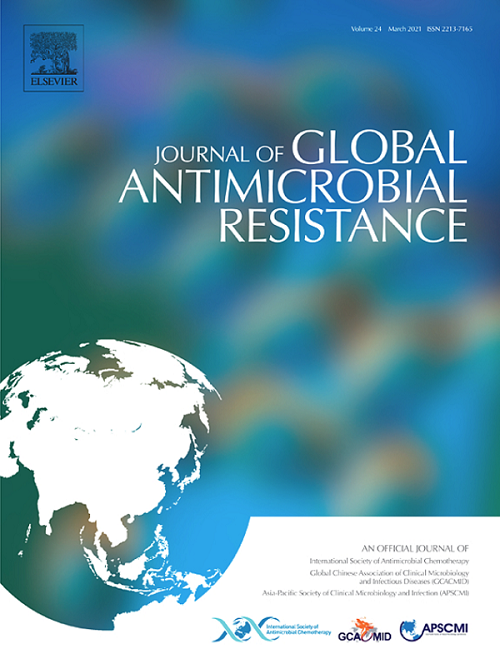在人道主义环境中推进临床细菌学:无国界医生组织的协作作用。
IF 3.2
3区 医学
Q2 INFECTIOUS DISEASES
引用次数: 0
摘要
抗菌素耐药性(AMR)是日益严重的全球健康威胁,特别是在资源有限和受冲突影响的环境中。获得诊断和监测(D&S)是解决抗菌素耐药性的关键支柱之一,但在许多这些环境中仍然受到严重限制。无国界医生组织(MSF)在世界范围内建立和支持细菌学实验室方面有十多年的经验。推广以人工培养为基础的细菌学、创新和能力建设为中心的务实模式,始终与感染预防和控制(IPC)和抗微生物药物管理(AMS)规划以及与卫生部的合作相结合。此外,诸如Mini-Lab或Antibiogo等创新策略已成功地整合到许多环境中。通过正确的方法,有效和可持续的抗菌素耐药性诊断在人道主义环境中是可行的。然而,如果不采取可行措施,公平获得抗药耐药性干预措施方面的差距将持续存在,使弱势群体继续面临风险。本文章由计算机程序翻译,如有差异,请以英文原文为准。
Advancing clinical bacteriology in humanitarian settings: The collaborative role of Médecins Sans Frontières
Antimicrobial resistance (AMR) is a growing global health threat, particularly in resource-limited and conflict-affected settings. Access to Diagnostics and Surveillance (D&S) is one of the key pillars to address AMR yet remains critically limited in many of these settings. Médecins Sans Frontières (MSF, Doctors Without Borders) has over a decade of experience in building and supporting bacteriology laboratories worldwide. A pragmatic model centred on manual culture-based bacteriology, innovation and capacity building is promoted, always integrated with Infection Prevention and Control (IPC) and Antimicrobial Stewardship (AMS) programs and collaboration with Ministries of Health. Moreover, innovative strategies such as the Mini-Lab or Antibiogo have been successfully integrated into numerous settings. Effective and sustainable AMR diagnostics are feasible in humanitarian settings with the right approach. However, without actionable steps, the gap in equitable access to AMR interventions will persist, leaving vulnerable populations at continued risk.
求助全文
通过发布文献求助,成功后即可免费获取论文全文。
去求助
来源期刊

Journal of global antimicrobial resistance
INFECTIOUS DISEASES-PHARMACOLOGY & PHARMACY
CiteScore
8.70
自引率
2.20%
发文量
285
审稿时长
34 weeks
期刊介绍:
The Journal of Global Antimicrobial Resistance (JGAR) is a quarterly online journal run by an international Editorial Board that focuses on the global spread of antibiotic-resistant microbes.
JGAR is a dedicated journal for all professionals working in research, health care, the environment and animal infection control, aiming to track the resistance threat worldwide and provides a single voice devoted to antimicrobial resistance (AMR).
Featuring peer-reviewed and up to date research articles, reviews, short notes and hot topics JGAR covers the key topics related to antibacterial, antiviral, antifungal and antiparasitic resistance.
 求助内容:
求助内容: 应助结果提醒方式:
应助结果提醒方式:


